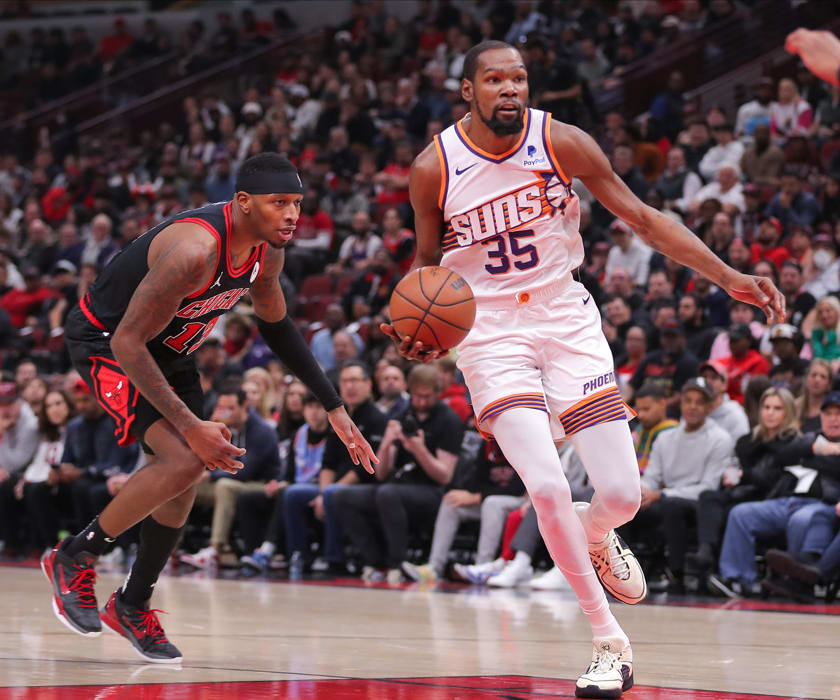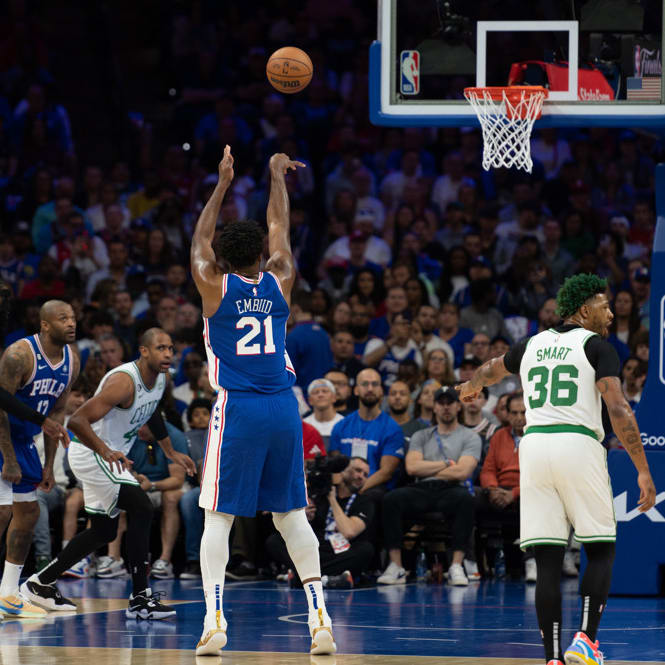2024 Stats
PTS
0.0
REB
0.0
AST
0.0
STL
0.0
BLK
0.0
2025 Projections

Calls it a career
Harris announced Thursday that he is retiring, Shams Charania of The Athletic reports.
ANALYSIS
Harris spent his final year in the NBA with the Pistons in 2023-24, when he made 16 appearances and averaged 2.4 points in 10.6 minutes. Harris spent the majority of his career in Brooklyn and was known as a lethal outside shooter, converting 43.5 percent of his career 4.7 three-point attempts per contest.
Harris spent his final year in the NBA with the Pistons in 2023-24, when he made 16 appearances and averaged 2.4 points in 10.6 minutes. Harris spent the majority of his career in Brooklyn and was known as a lethal outside shooter, converting 43.5 percent of his career 4.7 three-point attempts per contest.
NBA Per Game Stats
Per Game
Total
Per 36
NBA Per Game Stats
Loading Per Game Stats...
2023 NBA Game Log
2023
2022
2021
2020
2019
2018
2017
2016
2024 NBA Per Game Split Stats
Schedule
By Month
Starting/Off Bench
Days Rest
Vs Opp
By Result
2024 NBA Per Game Split Stats
Loading Split Stats...
Advanced Stats
Loading Advanced Stats...
Stat Review
2023
2022
2021
2020
2019
2018
2017
2016
How does Joe Harris compare to other players?
This section compares his stats with all players from the previous three seasons (minimum 200 minutes played)*. The bar represents the player's percentile rank. For example, if the bar is halfway across, then the player falls into the 50th percentile for that stat and it would be considered average.
True Shooting %
48.9%
Effective Field Goal %
48.7%
3-Point Attempt Rate
76.9%
Free Throw Rate
5.1%
Offensive Rebound %
1.9%
Defensive Rebound %
6.7%
Total Rebound %
4.3%
Assist %
7.7%
Steal %
0.8%
Block %
1.0%
Turnover %
7.4%
Usage %
11.0%
Fantasy Points Per Game
5.0
Fantasy Points Per Minute
0.5
NBA Historical Fantasy Stats
Historical ADP
Loading Historical ADP...
Past Fantasy Outlooks
2023
2022
2021
2020
2019
2018
2017
2016
2015
2014
After spending the past three years in Brooklyn, Harris was traded to the Pistons during the offseason. Although he played 74 games during the 2022-23 campaign, Harris was limited to just 20.6 minutes per night, the fewest he has played since the 2015-16 season. He finished well outside the top 200 in standard leagues, averaging 7.6 points and 1.9 three-pointers. The Pistons are by no means poised to make a title run but are enamored with some of their young guards. Harris will have to compete for playing time with Ausar Thompson, Jaden Ivey and Alec Burks, all of whom could be ahead of him in the rotation. At best, Harris should be viewed as nothing more than a potential streaming option if and when he lands a meaningful role.
More Fantasy News

Parting ways with Detroit
Harris will be waived by the Pistons on Thursday, Shams Charania of The Athletic reports.
ANALYSIS
Subscribe now to instantly reveal our take on this news.
Subscribe now to instantly reveal our take on this news.

Gets light run in return
Harris (shoulder) missed his lone field-goal attempt and recorded a blocked shot in four minutes in Friday's 123-91 loss to the Magic.
ANALYSIS
Subscribe now to instantly reveal our take on this news.
Subscribe now to instantly reveal our take on this news.

Returning to action
Harris (shoulder) is available for Friday's game versus the Magic.
ANALYSIS
Subscribe now to instantly reveal our take on this news.
Subscribe now to instantly reveal our take on this news.

Iffy for Friday
Harris (shoulder) is listed as questionable for Friday's game versus the Magic.
ANALYSIS
Subscribe now to instantly reveal our take on this news.
Subscribe now to instantly reveal our take on this news.

Officially ruled out
Harris (shoulder) won't play in Wednesday's game versus the Grizzlies.
ANALYSIS
Subscribe now to instantly reveal our take on this news.
Subscribe now to instantly reveal our take on this news.
Latest Fantasy Rumors

Cleveland could target him
Harris could be one of the options the Cavaliers might target on the buyout market as they look to add another shooter off the bench, Chris Fedor of Cleveland.com reports.
ANALYSIS
The Cavaliers are not expected to make any late additions to their roster since they have a well-established rotation following the returns of Darius Garland and Evan Mobley from their respective injuries. However, a late signing is not ruled out, and if the Cavaliers go that route, they could add a shooter to bolster their bench scoring. Harris spent the first half of the 2023-24 season with the Pistons but wasn't part of the rotation. During his last season when he was a regular member of a rotation, Harris shot 42.6 percent from three-point range with the Nets in 2022-23.
The Cavaliers are not expected to make any late additions to their roster since they have a well-established rotation following the returns of Darius Garland and Evan Mobley from their respective injuries. However, a late signing is not ruled out, and if the Cavaliers go that route, they could add a shooter to bolster their bench scoring. Harris spent the first half of the 2023-24 season with the Pistons but wasn't part of the rotation. During his last season when he was a regular member of a rotation, Harris shot 42.6 percent from three-point range with the Nets in 2022-23.












